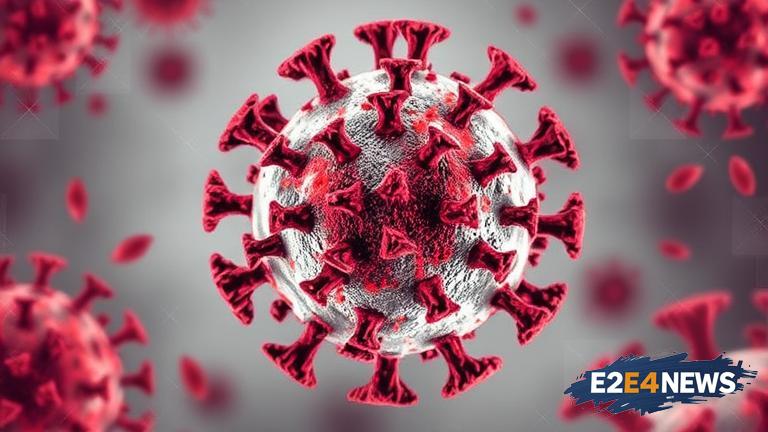The La Crosse virus, a rare but potentially deadly disease, has been reported in another individual, bringing the total number of cases to several in the region. The virus, which is spread through the bite of an infected mosquito, can cause severe symptoms, including fever, headache, and encephalitis, a potentially life-threatening inflammation of the brain. Public health officials are urging residents and visitors to take precautions against the disease, including wearing insect repellent, avoiding peak mosquito hours, and eliminating standing water around homes and public areas. The La Crosse virus is most commonly found in the Midwestern United States, particularly in areas with high concentrations of the Aedes and Anopheles mosquito species. The virus is typically spread through the bite of an infected female mosquito, which can become infected by feeding on the blood of an infected animal, such as a squirrel or chipmunk. Symptoms of the disease can range from mild to severe and may include fever, headache, nausea, vomiting, and fatigue. In severe cases, the virus can cause encephalitis, which can lead to seizures, coma, and even death. The Centers for Disease Control and Prevention (CDC) reports that the La Crosse virus is a rare disease, with only a few hundred cases reported annually in the United States. However, the disease can have serious consequences, particularly for children and older adults, who are at higher risk of developing severe symptoms. Public health officials are working to educate the public about the risks of the La Crosse virus and the importance of taking precautions against the disease. This includes wearing insect repellent, such as DEET or picaridin, when outdoors, particularly during peak mosquito hours, which are typically dawn and dusk. Residents and visitors are also urged to eliminate standing water around homes and public areas, which can serve as breeding sites for mosquitoes. This includes emptying standing water from containers, such as flowerpots and bird baths, and installing or repairing screens on windows and doors to prevent mosquitoes from entering homes. In addition to these precautions, public health officials are also working to control mosquito populations through the use of insecticides and other methods. The La Crosse virus is a significant public health concern, particularly in areas where the disease is common. By taking precautions against the disease and working to control mosquito populations, residents and visitors can help to reduce the risk of transmission and prevent serious illness. The public health alert issued in response to the new case of La Crosse virus serves as a reminder of the importance of being aware of the risks of the disease and taking steps to protect oneself and others. As the summer months approach, it is essential to be vigilant and take precautions against the La Crosse virus, as well as other mosquito-borne diseases, such as Zika and West Nile virus. By working together, we can help to prevent the spread of these diseases and keep our communities safe and healthy. The La Crosse virus is a rare but potentially deadly disease that can have serious consequences, particularly for children and older adults. It is essential to be aware of the risks of the disease and take precautions against it, including wearing insect repellent, eliminating standing water, and controlling mosquito populations. By taking these precautions, we can help to reduce the risk of transmission and prevent serious illness. The public health alert issued in response to the new case of La Crosse virus serves as a reminder of the importance of being aware of the risks of the disease and taking steps to protect oneself and others.
